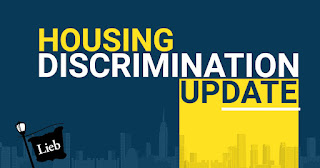Wednesday, December 28, 2022
Thursday, June 02, 2022
- Don't Miss Deadlines: Federal discrimination lawsuits provide only 2 years from the wrongful act to bring a lawsuit. Some states extend this to 3 years. However, there are often much shorter timelines dependent on who the perpetrator is, so act immediately. To illustrate, employment discrimination generally requires a filing with the EEOC within 300 days. Plus, a collective bargaining agreement can limit the statute of limitations for union workers even further. Alternatively, if the government is the defendant, a notice may need to be filed within 3 months or less. So, act swiftly if you are a victim.
- Don't Forget the Past: Just because deadlines exist from the last act of discrimination, it's possible to leverage a law called the Continuing Violation Doctrine to reprise untimely acts of discrimination in a lawsuit. So, make sure that you bring every wrongful act that you have experienced to the table if you are a victim of discrimination. That is the only way it can be stopped.
- Discrimination is NOT Just Physical: If an environment is hostile and filled with harassment, that is enough to bring a lawsuit. In fact, states like New York lower the hostile environment standard from the federal rule of severe and pervasive to inferior terms and conditions so long as the harassment rises above petty slights and trivial inconveniences. If you feel harassed because of your orientation or gender identity speak up now.
- It Goes Beyond Your Actual Orientation and Gender Identity: Your actual sexual orientation and gender identity are clearly protected from discrimination, but did you know that you are protected from discrimination even if the perpetrator got it wrong. The law also protects your perceived orientation and identity, which is particularly important for orientation because orientation needn't be confirmed from consistent sexual acts to exist.
- Retaliation is Illegal: Don't be afraid to speak up out of fear of reprisal. Simply, if you experience any negative retaliation whatsoever when you are fighting back against discrimination that you are experiencing, you can sue for that retaliation too. If retaliation happens at work, housing, education, places of public accommodation, or many other places, you can receive money damages for retaliation plus the court can order it stopped with your prior situation restored.
Monday, May 23, 2022
Is real estate discrimination illegal?
Yes. Discrimination in real estate is illegal throughout the United States. In some states, like New York, there are even greater protections, rights, and damages available to victims of housing discrimination. You are entitled to compensation whether you were discriminated against by a seller, landlord, tenant co-op, condo, HOA, lender, real estate broker, salesperson, or property manager.
Does real estate discrimination only apply to housing?
No. Real Estate discrimination laws apply to both housing and places of public accommodation. Examples include shopping centers, professional offices, retail stores, recreational facilities, service centers, and educational institutions.
Can I sue for housing discrimination?
Yes. Not only is it possible to sue for real estate discrimination, but Lieb at Law, P.C. has helped countless individuals recover compensatory damages and punitive damages for the emotional distress inflicted by this unlawful act. If you or a loved one were discriminated against because of your protected status or class, it is critical to work with an experienced attorney who will fight to ensure that you receive the compensation you deserve.
What qualifies as discrimination?
Discrimination is classified as unfair treatment to an individual because of their protected status or class. These statuses/classes vary throughout the United States, but may include race, ethnic background, visible traits (hair texture, hairstyle, donning of religious garments or items), color, national origin, citizenship status, alienage status, immigration status, lawful source of income (subsidy recipient status), occupation, religion, creed, marital status, partnership status, sex, gender, sexual orientation, gender identity or expression (transgender status), domestic violence victim status, stalking victim status, sex offense victim status, familial status, pregnancy, presence of children, handicap (disability), age, military status, uniformed service, veteran status, first responder status, arrest record, and sealed conviction record.
Can a real estate / housing provider change the terms of a lease or contract based on my protected class?
No. The law prevents real estate / housing providers from changing the terms, conditions, privileges, and/or availability of property based on your protected class status. It requires real estate brokers / salespersons to give you written disclosures that advise you of your rights. It prevents you from being treated differently from others where only the terms of your offer matter, not who you are.
Are handicapped individuals entitled to housing accommodations?
Yes. If you are handicapped or disabled, you are entitled to receive reasonable accommodations and reasonable modifications to allow you to equally use and enjoy the property. Your actual diagnosis does not need to be revealed and can remain confidential if you seek an accommodation or modification. In addition, the cost of the accommodation cannot be charged to you. In places like New York City, the cost of modifications cannot be charged to you either.
What are common examples of disability cases concerning housing discrimination?
The most common handicap and disability cases that we see involve service animals or emotional support animals in no pet properties. Other types of cases include parking issues, egress ramps for mobility impairments, and additional failure-to-accommodate cases. When it comes to accommodating the rights of handicapped and disabled individuals, providing access is essential.
Can I be discriminated against based on my source of income?
Whether you receive subsidies, like Section 8 (Housing Choice Vouchers), or are unemployed and receive child support, disability, spousal support, or have a trust fund, your source of income cannot impact your housing choices. The law protects you from offensive signage, improper applications, and/or wrongful questionnaires if they inquire about your employment status, request your W-2, or solicit a letter of employment. Where you get your rent money is your business and yours alone.
Can I be retaliated against if I proceed with a discrimination lawsuit?
Don't be afraid to speak-up. If you are advancing a fair housing and/or anti-discrimination right, you are protected from retaliation. Even if it is ultimately found that you were not discriminated against, you can be compensated for facing unlawful coercion, intimidation, threats, or other types of interference with your anti-discrimination rights. It also applies if you are an ally who is aiding and/or encouraging someone else to exercise their rights to be free from discrimination.
What happens if I win my housing discrimination case?
As the victim, you can recover compensatory damages, punitive damages, and your attorneys’ fees. The perpetrator can lose their license (if applicable), be required to take trainings, be made to pay fines, and be ordered to stop their offensive behavior. Working with a top discrimination attorney affords you the best possible chance at a successful outcome to your case. If you or a loved one has been treated unfairly and is in need of legal assistance, contact our team today.
Monday, May 16, 2022
On May 13, 2022, NYS protected victims of domestic violence from discrimination in credit, housing, educational institutions, employment agencies, and labor organizations. Even real estate brokers are subject to this law and everyone needs to know that they must treat victims with the respect and support that they need and deserve.
While domestic violence victims have been protected from employment discrimination since 2019, within the state, the new law, S8417B, even expands this category by now making employment applications and advertisements subject to the law.
Simply, if you are a victim of domestic violence, you have rights. This applies to the "1 in 4 women and 1 in 7 men [who] will experience severe physical violence by an intimate partner in their lifetime" according to CDC reports. Simply, you are not alone and if you experience discrimination you have the right to be compensated.
Friday, April 22, 2022
Discrimination in real estate is illegal throughout the United States and in certain states, like New York, there are even greater protections, rights, and damages available to victims.
Whether you were discriminated against by a seller,
landlord, tenant co-op, condo, HOA, lender, real estate broker / salesperson, or
property manager, you are entitled to compensation. This is true in housing and
at places of public accommodation (i.e., shopping center, professional office,
retail store, educational institution, recreational facility, and service
center). This is often even true if the discrimination was unintentional or
caused by the perpetrator's implicit biases.
Anti-discrimination rights and protections entitle victims
to sue for compensation if discrimination occurred because of your protected
status / protected class, which statuses / classes vary throughout the United
States, but may include your race, ethnic background, visible traits (hair
texture, hairstyle, donning of religious garments or items), color, national
origin, citizenship status, alienage status, immigration status, lawful source
of income (subsidy recipient status), occupation, religion, creed, marital
status, partnership status, sex, gender, sexual orientation, gender identity or
expression (transgender status), domestic violence victim status, stalking
victim status, sex offense victim status, familial status, pregnancy, presence
of children, handicap (disability), age, military status, uniformed service,
veteran status, first responder status, arrest record, and sealed conviction
record.
The law prevents real estate / housing providers from
changing the terms, conditions, privileges, and/or availability of property
based on your protected class status. It requires real estate brokers /
salespersons to give you written disclosures that advise you of your rights. It
prevents you from being treated differently from others where only the terms of
your offer matter, not who you are.
If you are handicapped / disabled, you are also entitled to
receive reasonable accommodations (change to policies / procedures / rules) and
reasonable modification (change to structure) so that you can equally use and
enjoy property. Plus, your actual diagnosis need not be fully revealed and can
remain confidential when you seek such an accommodation / modification. Better
yet, the cost of the accommodation cannot be charged to you, and in places like
New York City, this is also true for the cost of modifications. The most common
handicap / disability cases that we see involve service animals / emotional
support animals in no pet properties, preferential / parking and ingress /
egress ramps for mobility impairments, and other failure-to-accommodate cases.
We are also involved in ADA failure-to-remove barrier cases and more. When it
comes to handicapped / disabled people, it's all about providing access.
If you receive subsidies, like Section 8 (Housing Choice
Vouchers), or you are unemployed (i.e., retired, spousal / child support
recipient, trust fund baby, student, disabled), your source of income cannot
impact your housing choices. You are protected from offensive signage, improper
applications, and/or wrongful questionnaires if they inquire about your
employment status, request your W-2, or even solicit a letter of employment.
Simply, seeing your voucher cannot be a prerequisite to seeing / viewing an
apartment. Where you get the rent should be no one's business.
Don't be afraid to speak-up. If you are advancing a fair housing and/or anti-discrimination right, you are protected from retaliation. Even if it is ultimately found that you were not discriminated against, you can nonetheless be compensated for facing unlawful coercion, intimidation, threats, or other types of interference with your anti-discrimination rights. This is not just true if you are advancing your own rights, it also applies if you are an ally who is aiding and/or encouraging someone else to exercise their rights to be free from discrimination.
Fair housing laws make housing available to everyone without
stigma, loss of dignity, or other harms. If you are a victim, you can recover
compensatory damages (being made whole), punitive damages (punishment damages),
and your attorneys' fees. The perpetrator can lose their license (if licensed),
be required to take trainings, and be ordered to stop their offensive behavior.
There are fines and more. Discrimination is wrong and must be stopped.
*Attorney advertising













